Working Together to Address Inequality: Practising Realistic Healthcare
Using three stories of improvement, the Queen’s Nursing Institute Scotland will discuss unleashing the potential of clinical staff to be catalysts for change in their communities.
Each of these stories show how practitioners, who have the courage, skills and vision, can work across organisational boundaries to make a difference.
Three case studies are offered to demonstrate how people can be empowered to make good choices, giving them dignity and control over their lives and improving outcomes.
Case study one: Jess Davidson is Senior Clinical Forensic Charge Nurse, based at St Leonard’s Police Station in Edinburgh. She has introduced preventative care to police custody through working with police, health, local authority and third sector colleagues. Jess helps people to form relationships that can enable them to realise a different future, through trauma informed care, alcohol brief intervention, real time hepatitis C testing and arrest referral conversations.
Case study two: Hilary Alba is a senior midwife in Glasgow working with refugees and asylum seekers. Her expertise is in working with women who have experienced trauma and female genital mutilation. Hilary co-created a new way of preparing pregnant women who are asylum seekers for giving birth in Glasgow, negotiating the NHS. She worked with the British Red Cross and a range of other agencies. They used whispering interpretation and the women’s other children were welcome in the sessions. This has been transformational for the women involved.
Case study three: Rachel McReady is a parish nurse, employed by the Steeple Church. She mapped all the recovery support across Dundee for the homeless men and women she works with, many of whom are trying to move on from addictions. Working with agencies from the statutory and voluntary sector across the city, she gathered information and set it out in a pocket-sized format so that people have what they need to access support each day of the week. She raised the money to pay for the printing costs.
Each practitioner was enabled in their improvement journey through the Queen’s Nurse Institute development programme. The programme is built around inspirational, creative and contemplative residential workshops, monthly coaching and intensive peer support, actively engaging the candidates in co-producing their issue for improvement. This nine month journey of discovery enabled each to realise their own potential as change makers, giving them the skills and courage and tenacity to address barriers one conversation at a time.
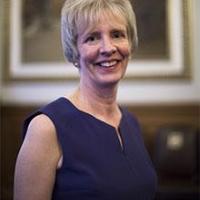
Clare Cable
Chief Executive and Nurse Director, Queen’s Nursing Institute Scotland
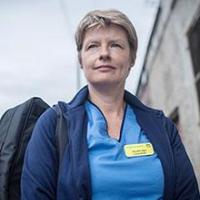
Hilary Alba
Clinical Supervisor Team Lead SNIPS/Asylum/FGM, NHS Greater Glasgow and Clyde
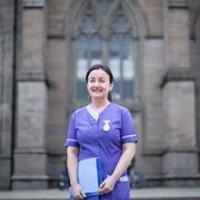
Rachel McReady
Parish Nurse, Steeple Church Dundee
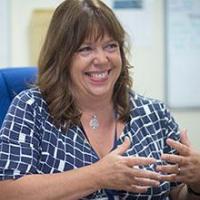
Jessica Davidson
Senior Clinical Forensic Charge Nurse, NHS Lothian
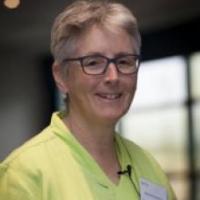
Rhona Hotchkiss
LLM, BSc (Hons), QNIS Assoc. Fellow

Nadine Hare
Highly Specialist Speech and Language Therapist (Head & Neck/Voice)